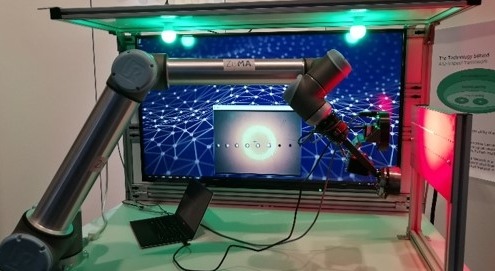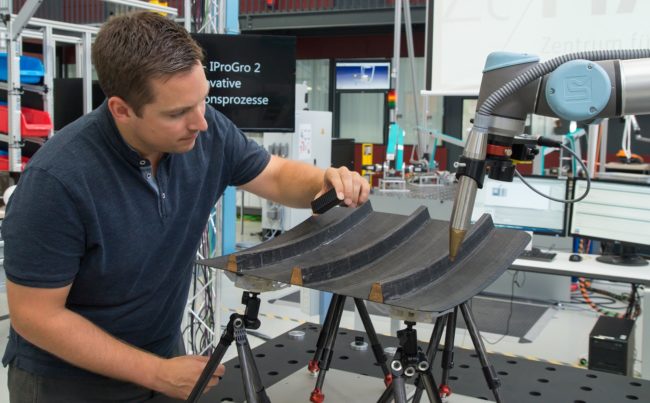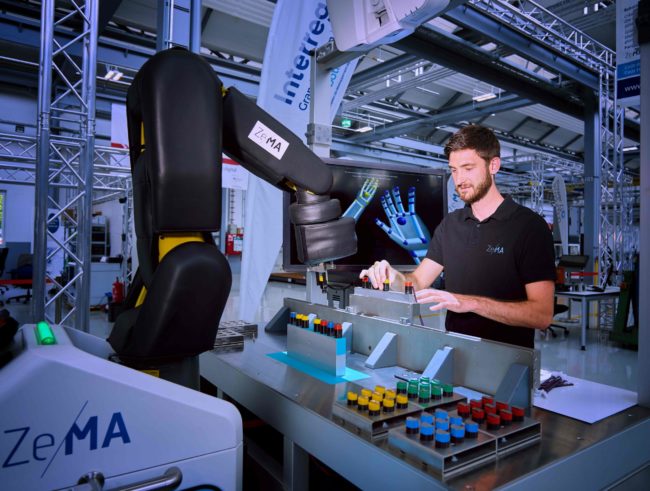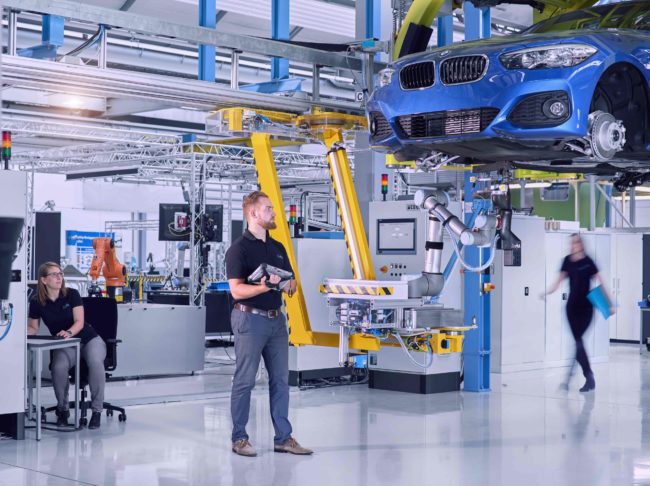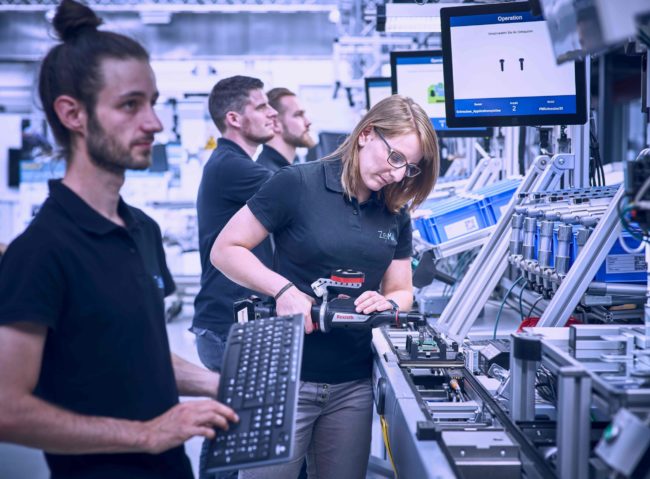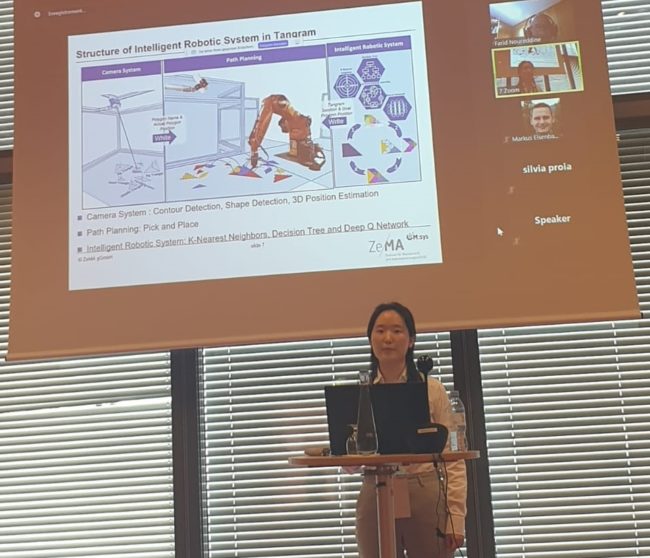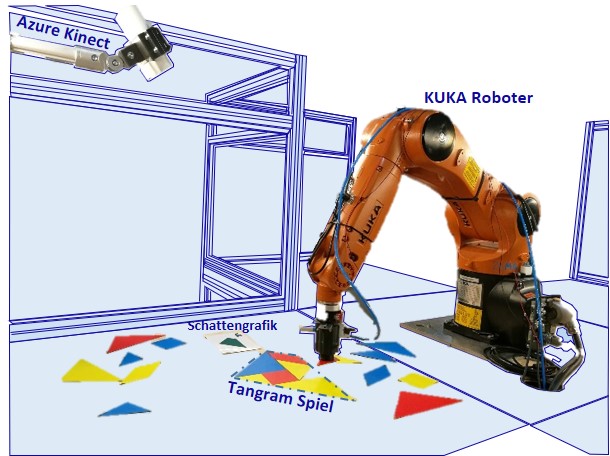AI-based quality control (ZeMA)
Problem Quality assurance often takes place under poor ergonomic conditions. In addition, quality assurance is often performed manually, incompletely and analogously. Objectives Quality control can be performed during the process. Process parameters can thus be adjusted quickly and continuously. Approach Human-robot collaboration in process control, sensor data fusion of camera, laser line sensor and force-torque…


